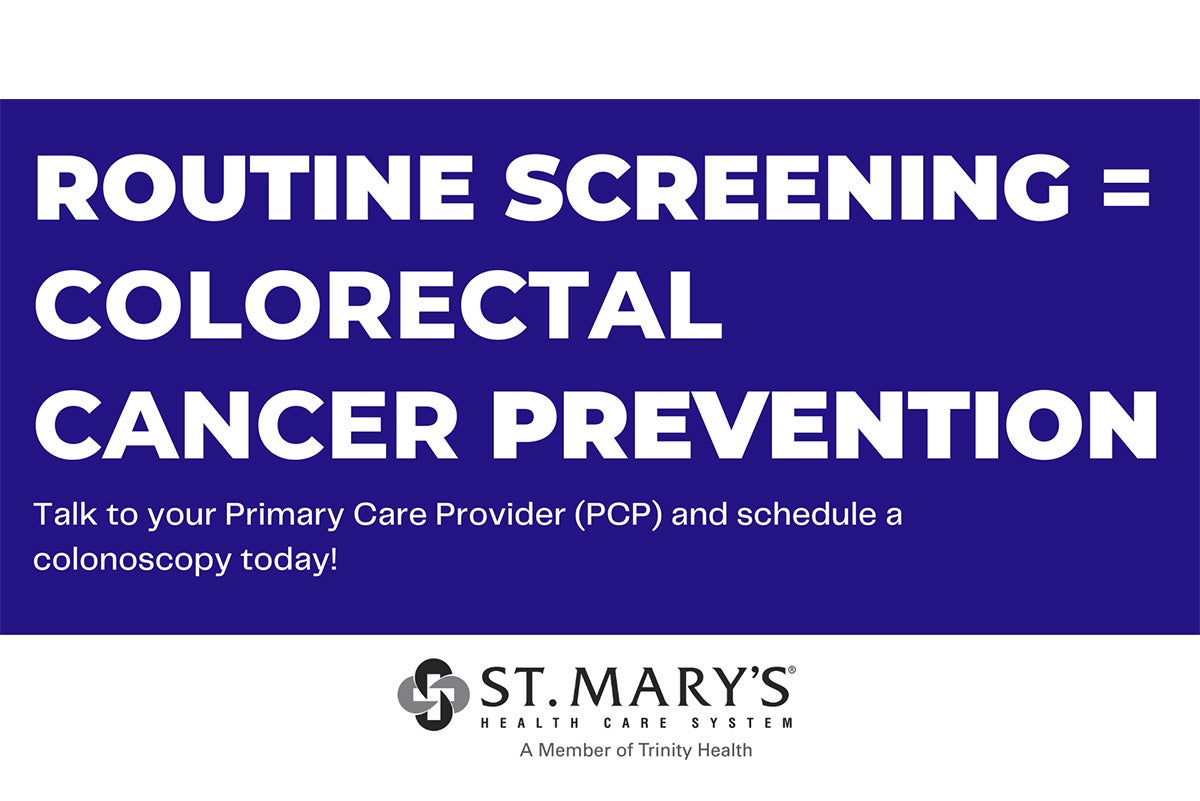Discover Why Colonoscopy Screenings Matter
March 21, 2023Colorectal cancer is the third most common cancer worldwide. It is a disease caused by cells dividing out of control in the colon or rectum. The colon is the large intestine, and the rectum connects the colon to the anus. Polyps, which are abnormal growths, can form in the colon or rectum. These polyps can turn into cancer. Colonoscopy screenings are the first line of defense against colorectal cancer.
What is a colonoscopy screening?
Generally, a screening test is used when a person does not have any symptoms present. Sometimes, a stool test will determine if a colonoscopy is needed. A colonoscopy screening is used to find polyps in the colon or rectum.
One day before the procedure, you will go on a clear liquid diet. You will also need to drink a prescription laxative to clean out your colon. Your doctor will provide you with details in advance.
During the procedure, the doctor will examine the lining of your colon to check for polyps and remove any found. While you are under “twilight” anesthesia, a long, thin tube called a colonoscope will be inserted into your colon through the rectum. The tube has a camera and a light, which allow the medical team to find and remove any polyps that might be present.
A screening usually takes 30 to 60 minutes, depending on whether the doctor needs to remove any polyps. After the procedure, you will stay in the hospital for a short time to monitor your recovery. Please note that, due to the anesthesia, you will need someone to drive you home. Your doctor will give you post-procedure instructions at discharge. Most people can return to work and other activities the next day.
Why is a colonoscopy screening important?
Early stages of colorectal cancer usually do not have any symptoms. Fortunately, regular screenings can help find pre-cancerous and cancerous polyps. If found, the polyps can be removed from the colon or rectum before they develop into cancer. The good news is, when found early, colorectal cancer can be highly treatable.
Who performs a colonoscopy?
There are two types of doctors who perform this screening procedure.
- General surgeons: These doctors are trained to perform surgical procedures in parts of the body such as the abdomen, digestive system, and many organs. Athens General and Colorectal Surgeons is a practice affiliated with St. Mary’s Medical Group. All surgeons in the practice are highly experienced in colonoscopy and surgical treatment of colorectal cancer.
- Gastroenterologists: These doctors specialize in diagnosing and treating diseases of the digestive system.
When should I get screened?
The U.S. Preventive Services Task Force recommends beginning regular screening at the age of 45, regardless of gender. However, some people may decide to get screened earlier if they have:
- An inflammatory bowel disease such as Crohn’s disease
- A family or personal history of polyps and/or colorectal cancer
- A genetic syndrome such as familial adenomatous polyposis
Speak to your Primary Care Provider (PCP) about colorectal health, especially if you think you may be at increased risk of colorectal cancer. You should plan to get a colonoscopy every 10 years if polyps are not found in the screenings. If they are found, your doctor may suggest having a screening every 5 years
Do you need to find a PCP? St. Mary’s can help.



